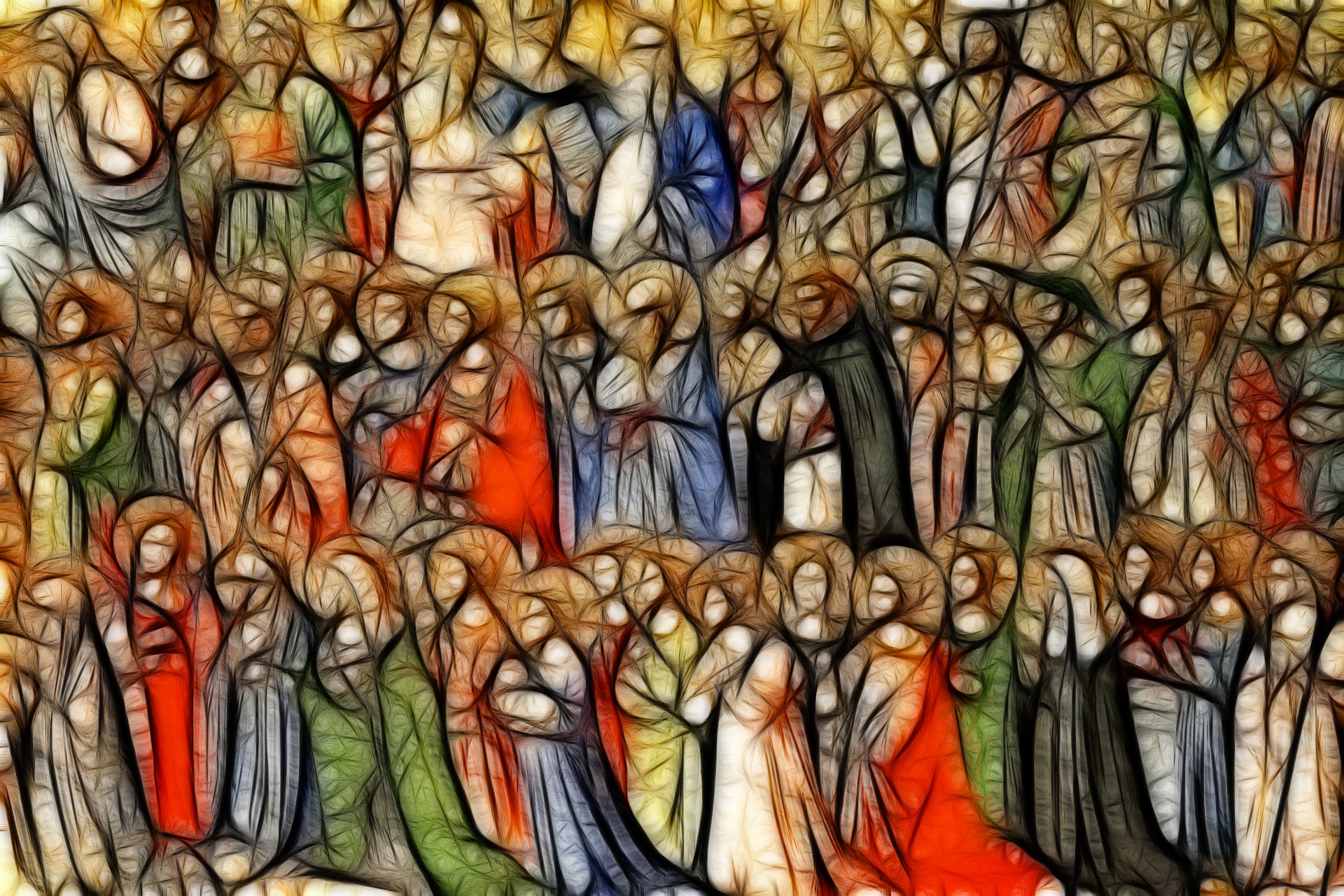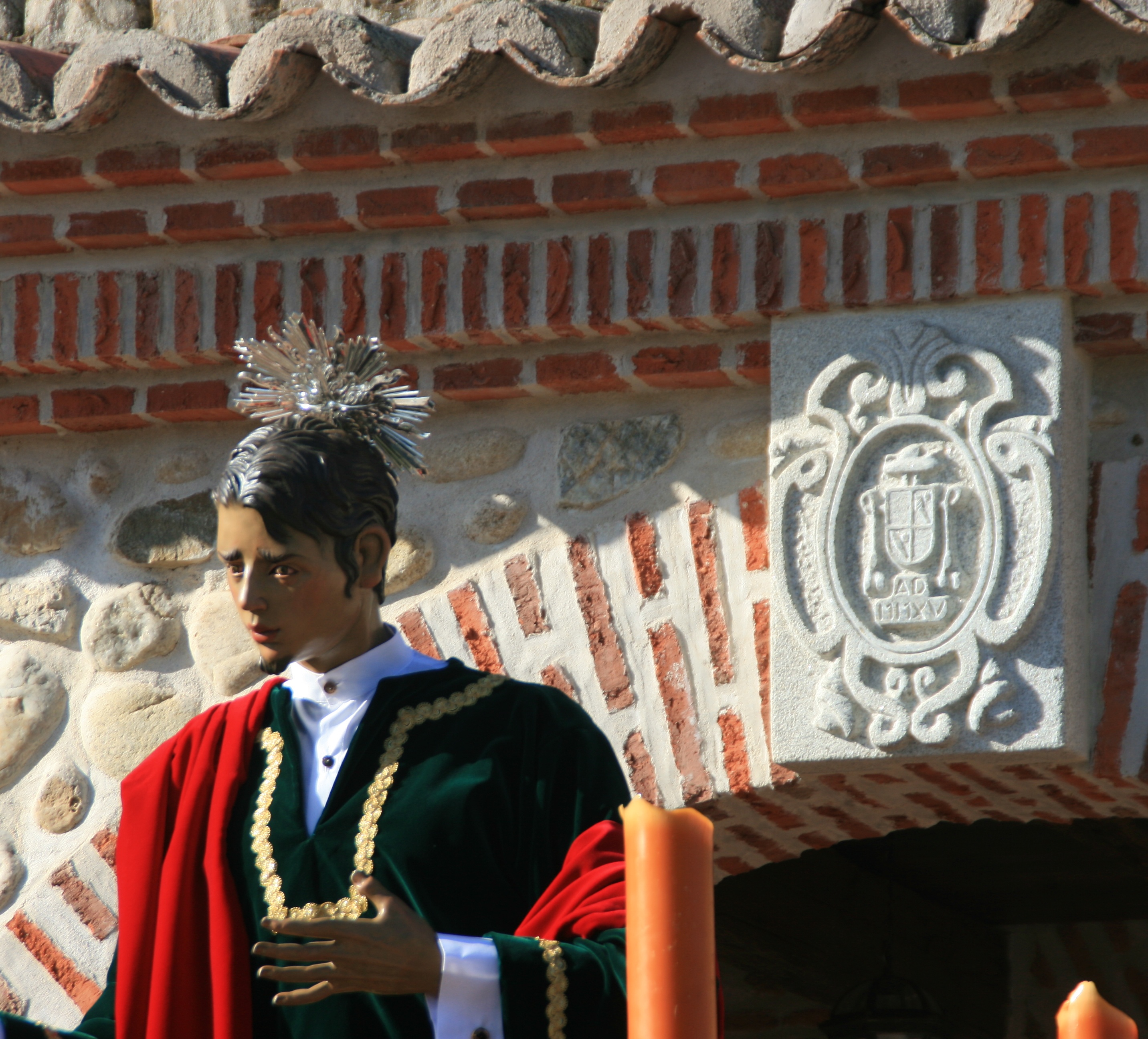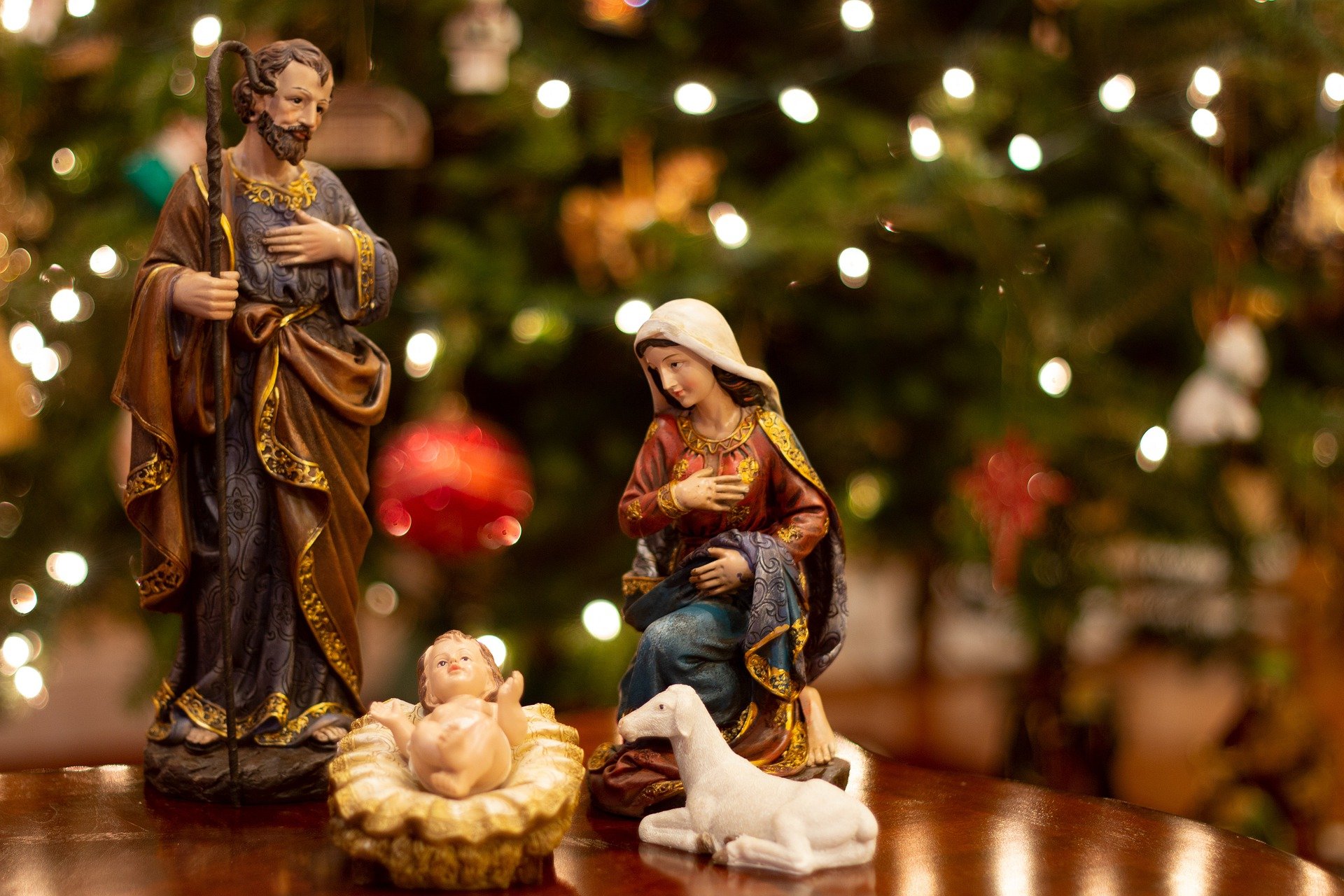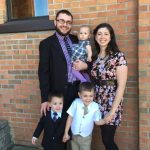Today, on the Feast of the Holy Innocents, we remember the massacre of young boys in Bethlehem by King Herod the Great in the time of Jesus. Herod orders the death of innocent children out of envy, anger, and fear. He does not want His dynasty to end and allow a new Kingdom to come about. Herod’s heart was closed to the Kingdom of God and evil only occurs when we, God’s creation, close our hearts to Him, our Creator. In His attempt to prevent the will of God, Herod kills the most innocent of God’s creations, fails in his attempt to kill Jesus, and shows the world that the will of God can be accomplished despite man’s sinfulness.
This has always been a difficult celebration for me to understand. Why would God allow something so evil and so tragic to happen? And why would we celebrate this event? In preparing to write this reflection, I came upon a beautiful passage: “The Holy Innocents died in Christ’s stead so He could die in ours.” It was in reading this that I realized we celebrate the Feast of the Holy Innocents for the same reason and in a similar manner, that is solemn, as we celebrate Christ’s passion, death, and resurrection during Holy Week. Although God does not will evil and although evil is a result of man’s sin, God can still do His will through the evil that persists in our earthly world. We celebrate the martyrdom of the Holy Innocents because, in a profound way, during their very short lives they were able to do that for which all of us should strive: die for Christ. It is because of the Holy Innocents that we have the privilege to know, love, and serve Our Lord, Jesus Christ. The deaths of the Holy Innocents, and Herod’s ultimate failure in his attempt to kill Jesus, brings to mind the verse from Paul’s first letter to the Corinthians: “O death, where is your sting? O Hell, where is your victory”? There is no sting of death; there is no victory of Hell. Christ has already conquered death.
Important to contemplate, as well, is the fact that Jesus did not enter this world to the sound of trumpets and praise. Rather, He entered this world with only His mother and father present, in a lowly manger. Very soon after His birth, His family fled to Egypt in exile. From the beginning, His life was not easy and He and His family were faced with persecution. So what do the lives of Christ and those of the Holy Innocents tell us about our lives? They are not meant to be easy. It is inevitable that living a life for Christ will bring about persecution and hardship. But there is hope!
We hear about that hope in John’s epistle. He tells us that Christ is the Light that came into the world. In order for Him to light the darkness of our lives, we must accept Him and we must live in His truth. When we bring Christ into the darkest corners of our lives, He dispels all our darkness and we are able to live in His Light.
 Dakota currently lives in Denver, CO and teaches English Language Development and Spanish to high schoolers. She is married to the love of her life, Ralph. In her spare time, she reads, goes to breweries, and watches baseball. Dakota’s favorite saints are St. John Paul II (how could it not be?) and St. José Luis Sánchez del Río. She is passionate about her faith and considers herself blessed at any opportunity to share that faith with others. Check out more of her writing at https://dakotaleonard16.blogspot.com.
Dakota currently lives in Denver, CO and teaches English Language Development and Spanish to high schoolers. She is married to the love of her life, Ralph. In her spare time, she reads, goes to breweries, and watches baseball. Dakota’s favorite saints are St. John Paul II (how could it not be?) and St. José Luis Sánchez del Río. She is passionate about her faith and considers herself blessed at any opportunity to share that faith with others. Check out more of her writing at https://dakotaleonard16.blogspot.com.
Feature Image Credit: geralt, https://pixabay.com/illustrations/all-saints-christian-holy-faith-2887463/


 Deacon Dan Schneider is a retired general manager of industrial distributors. He and his wife Vicki have been married for over 50 years. They are the parents of eight children and thirty grandchildren. He has a degree in Family Life Education from Spring Arbor University. He was ordained a Permanent Deacon in 2002. He has a passion for working with engaged and married couples and his main ministry has been preparing couples for marriage.
Deacon Dan Schneider is a retired general manager of industrial distributors. He and his wife Vicki have been married for over 50 years. They are the parents of eight children and thirty grandchildren. He has a degree in Family Life Education from Spring Arbor University. He was ordained a Permanent Deacon in 2002. He has a passion for working with engaged and married couples and his main ministry has been preparing couples for marriage.



 Sr.
Sr.  Sr. Kathryn J. Hermes, FSP is a compassionate mentor and guide. Through her writing and online ministry she takes others along with her on her own journey of spiritual transformation, specializing in uncovering in the difficult moments of life where God’s grace is already breaking through. Connect with her website and blog:
Sr. Kathryn J. Hermes, FSP is a compassionate mentor and guide. Through her writing and online ministry she takes others along with her on her own journey of spiritual transformation, specializing in uncovering in the difficult moments of life where God’s grace is already breaking through. Connect with her website and blog:  As Diocesan Publications’ Solutions Evangelist, Tommy is committed to showing parish and diocesan staffs how to use our communication tools to their best advantage. He has worked for years in various, youth ministry, adult ministry, and diocesan roles. As an expert on Catholic communication, Tommy uses his parish and diocesan experiences to help you make your ministry effective. To bring Tommy to your parish or for general inquiry, contact him at
As Diocesan Publications’ Solutions Evangelist, Tommy is committed to showing parish and diocesan staffs how to use our communication tools to their best advantage. He has worked for years in various, youth ministry, adult ministry, and diocesan roles. As an expert on Catholic communication, Tommy uses his parish and diocesan experiences to help you make your ministry effective. To bring Tommy to your parish or for general inquiry, contact him at  “
“ Paul Fahey is a husband, father, and a parish director of religious education. He is a student of Theology, History, and Catholic Studies. If you like what he has to say, check out his blog,
Paul Fahey is a husband, father, and a parish director of religious education. He is a student of Theology, History, and Catholic Studies. If you like what he has to say, check out his blog,  Beth Price is a Secular Franciscan (OFS) and spiritual director who has worked in several parish ministry roles during the last 20 years. She is a proud mother of 3 adult children. Beth currently works at Diocesan.
Beth Price is a Secular Franciscan (OFS) and spiritual director who has worked in several parish ministry roles during the last 20 years. She is a proud mother of 3 adult children. Beth currently works at Diocesan. Sr. Marianne Lorraine Trouve’ has been a member of the Daughters of Saint Paul since 1976. She has an MA in theology from the University of Dayton and has served on the editorial staff of Pauline Books & Media for over 20 years. She is the author of several books, including
Sr. Marianne Lorraine Trouve’ has been a member of the Daughters of Saint Paul since 1976. She has an MA in theology from the University of Dayton and has served on the editorial staff of Pauline Books & Media for over 20 years. She is the author of several books, including